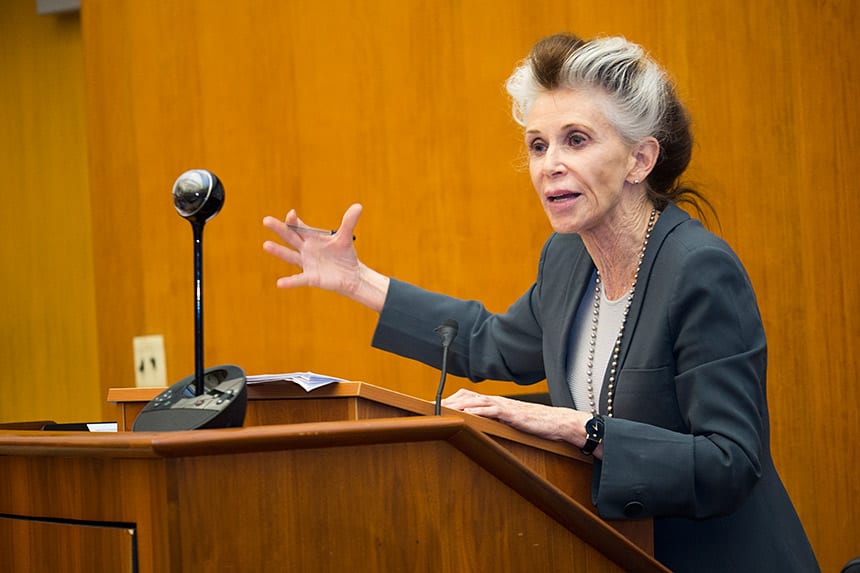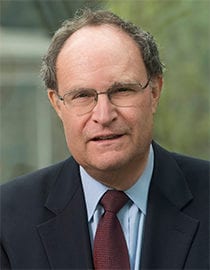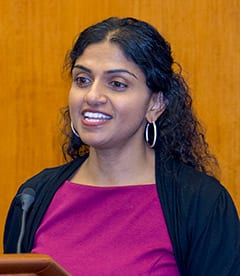
By Sarah Weld
When feminist legal scholar Catharine MacKinnon addressed the Worldwide #MeToo Movement conference crowd last week, the almost entirely female crowd was riveted.
One of three keynote speakers during the daylong event at Berkeley Law, MacKinnon—who pioneered the legal claim for sexual harassment and whose life’s work has focused on women’s rights—assessed the current status of the #MeToo movement, which exploded in the fall of 2017.
“This here is real change, so don’t ask me what is next. This is it. … We haven’t won yet but we are winning,” said MacKinnon, a law professor at the University of Michigan. “Imagine a revolution without violence, against domination and aggression. Envision a moment of truth, a moment of transformation for the sexually violated toward a more equal, therefore more peaceful and just world. It’s happening all over the world. All around us. Right now.”

The second annual conference, which focused on global resistance to sexual harassment and violence, is an outgrowth of the international 400-member Comparative Equality & Anti-Discrimination Law Study Group led by Berkeley Law Professor David Oppenheimer.
It also included smaller study sessions, on separate days, that brought together women’s rights leaders and lawyers from around the world to compare post-#MeToo legal strategies to combat sexual harassment and support what MacKinnon called “a whole tsunami of enraged women.”
Oppenheimer said participants reached several conclusions from those sessions, including the need to: find better ways to prevent harassment and to support women who report it; combat how defamation law is being used to silence women, particularly outside the United States; seek more effective legal remedies; and connect harassment to pay equity and economic equality.
“This is exactly the kind of conference I want to see us doing at Berkeley Law because it brings together activists, lawyers, people from the community, all of those who are trying to come up with solutions,” Dean Erwin Chemerinsky said in his introduction. “By bringing people together we are much more likely to come up with something that’s effective.”
Fighting back
Saru Jayaraman, who directs UC Berkeley’s Food Labor Research Center and co-founded the nonprofit Restaurant Opportunities Centers United, opened the day with a rousing speech about her advocacy for restaurant industry workers. There are 13 million in the United States, and the majority are women working for a subminimum wage often as low as $2.13 an hour.
Because so many restaurant employees work for tips—often influenced by how appealing and attractive the customer finds the server—sexual harassment is rampant. Some 90 percent of workers in the field say they experience it on a daily basis, said Jayaraman, who teaches at UC Berkeley’s Goldman School of Public Policy. “If a woman … knows that her only income comes from tips, she has no power to reject harassment—not only from customers, but from managers and coworkers,” she said.

Jayaraman’s nonprofit successfully launched a national campaign called One Fair Wage, which resulted in eight states (including California), eliminating the sub-minimum wage, plus Washington, D.C. and Flagstaff, Ariz., and 16 states introducing legislation to eliminate it.
Purna Sen, the United Nations’ executive coordinator and spokesperson on addressing sexual harassment and other forms of discrimination, addressed the global analysis of discrimination against women in the third keynote speech.
She talked about the Convention on the Elimination of All Forms of Discrimination against Women, the so-called international bill of rights for women adopted in 1979 by the UN General Assembly. The United States is one of a handful of countries that has not yet ratified the convention, which defines discrimination against women and outlines ways to end it.
Sen noted that the UN has started looking at its own culture, which she said shows the #MeToo movement’s expansive reach. The UN is also examining a “massive set of data” looking at #MeToo on social media.
A global perspective
The 180 attendees spent the day learning from 64 panelists and speakers from around the world, many of whom reported on sexual harassment laws from countries such as Afghanistan, Japan, the Czech Republic, Colombia, and Iran.
Other panels examined how general counsels should address harassment (featuring Berkeley Law Business in Society Institute Director Amelia Miazad ’02), the role of non-disclosure agreements (moderated by Kelly Dermody ’93, who has brought gender discrimination cases against Google and Microsoft), workplace investigations, the roles of litigation and law reform in finding solutions to harassment, and harassment in schools and universities.
Several Berkeley Law students attended the event, including Malka Herman ’20 and Pallavi Kondapalli ’20. Having followed #MeToo closely in the U.S. and also in her native India, Kondapalli was impressed and surprised with how it took off there.
“I wanted to learn more about how other countries were reacting to #MeToo today,” she said. “I was very moved by the conference and the stories.”
Herman’s interest stemmed from working on a paper about the #MeToo movement’s legal strategies. She says she learned a lot about international perspectives on #MeToo, and can now add material to her paper’s section on institutional harassment issues: “The conference was more about shifting my perspective back to one of hope instead of negativity.”